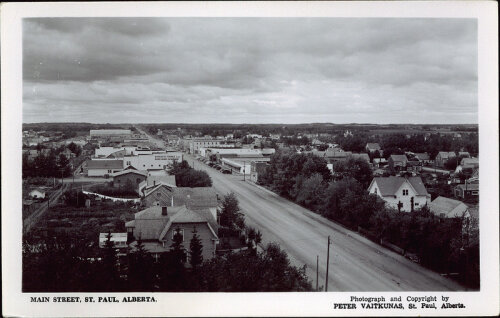Best ADR Mediation & Arbitration Lawyers in St. Paul
Share your needs with us, get contacted by law firms.
Free. Takes 2 min.
List of the best lawyers in St. Paul, Canada
About ADR Mediation & Arbitration Law in St. Paul, Canada
Alternative Dispute Resolution (ADR) in St. Paul, Canada, encompasses mediation and arbitration as effective ways to resolve disputes outside of traditional courtroom litigation. Mediation involves a neutral third party helping the disputing parties reach a mutually acceptable agreement. Arbitration, on the other hand, requires a neutral arbitrator who hears both sides' arguments and makes a binding decision. ADR is particularly valued for its potential to save time and costs and for its more informal and flexible nature compared to court proceedings.
Why You May Need a Lawyer
Engaging a lawyer for ADR processes can be beneficial in various situations. Firstly, if you are unfamiliar with legal procedures, a lawyer can provide guidance and help prepare the necessary documents. Secondly, legal advice is crucial when the stakes are high and a fair outcome is essential. Lastly, in complex disputes, a lawyer can assist in strategizing and negotiating effectively, increasing the likelihood of a favorable resolution in mediation or favorable ruling in arbitration.
Local Laws Overview
In St. Paul, Canada, ADR is governed by both federal and provincial laws, with the Alberta Arbitration Act being a key piece of legislation for arbitration. While mediation does not have strict legal requisites, the process is guided by principles of fairness, voluntariness, and confidentiality. Arbitration awards can be enforced like court judgments, but they are typically not subject to appeal. It's important to be aware of limitations concerning the selection of arbitrators, enforceability of awards, and the agreements to arbitrate or mediate.
Frequently Asked Questions
What is the difference between mediation and arbitration?
Mediation is a voluntary process facilitated by a mediator who helps parties reach a settlement, while arbitration involves an arbitrator who makes a binding decision after hearing the evidence and arguments.
Is ADR legally binding in St. Paul?
Mediation agreements can be binding if both parties consent to the terms, whereas arbitration decisions (awards) are generally binding and enforceable in courts.
How long do ADR processes usually take?
The duration varies; mediation can take a few hours to several sessions over weeks, whereas arbitration can take several months, depending on the case complexity.
Can I have a lawyer represent me during ADR sessions?
Yes, parties can have legal representation during mediation and arbitration, and it's often advisable to ensure fair representation, especially in complex cases.
Are ADR proceedings confidential?
Typically, ADR proceedings are private and confidential, ensuring that sensitive information is protected from public disclosure.
What types of disputes can be resolved through ADR?
A wide range of disputes can be resolved, including commercial, employment, family, and consumer issues, among others.
How do I enforce an arbitration award?
An arbitration award can be enforced by applying to the court, which can confirm the award and enable enforcement similar to a court judgment.
Can I choose my mediator or arbitrator?
Parties often agree on a mediator or arbitrator, or they may be appointed by an ADR institution if the parties cannot agree.
What costs are involved in ADR?
Costs include mediator or arbitrator fees, legal fees, and administrative expenses, usually lower than court proceedings but dependent on complexity and duration.
Can I appeal an arbitration decision?
Arbitration awards are generally final and not subject to appeal; however, they can be challenged in specific circumstances such as procedural errors or arbitrator bias.
Additional Resources
For further support, consider consulting the Alberta Arbitration and Mediation Society, the ADR Institute of Canada, or the Legal Aid Alberta. These organizations offer resources, referrals, and information about ADR practitioners and processes.
Next Steps
If you need legal assistance in ADR Mediation & Arbitration, start by identifying the nature of your dispute and desired outcome. Consult with a lawyer who specializes in ADR to discuss your options and get guidance tailored to your situation. Prepare any relevant documents and evidence and decide whether you want representation during the ADR proceedings. Lastly, ensure that you understand the financial implications and the potential time commitment involved.
Lawzana helps you find the best lawyers and law firms in St. Paul through a curated and pre-screened list of qualified legal professionals. Our platform offers rankings and detailed profiles of attorneys and law firms, allowing you to compare based on practice areas, including ADR Mediation & Arbitration , experience, and client feedback.
Each profile includes a description of the firm's areas of practice, client reviews, team members and partners, year of establishment, spoken languages, office locations, contact information, social media presence, and any published articles or resources. Most firms on our platform speak English and are experienced in both local and international legal matters.
Get a quote from top-rated law firms in St. Paul, Canada — quickly, securely, and without unnecessary hassle.
Disclaimer:
The information provided on this page is for general informational purposes only and does not constitute legal advice. While we strive to ensure the accuracy and relevance of the content, legal information may change over time, and interpretations of the law can vary. You should always consult with a qualified legal professional for advice specific to your situation.
We disclaim all liability for actions taken or not taken based on the content of this page. If you believe any information is incorrect or outdated, please contact us, and we will review and update it where appropriate.








